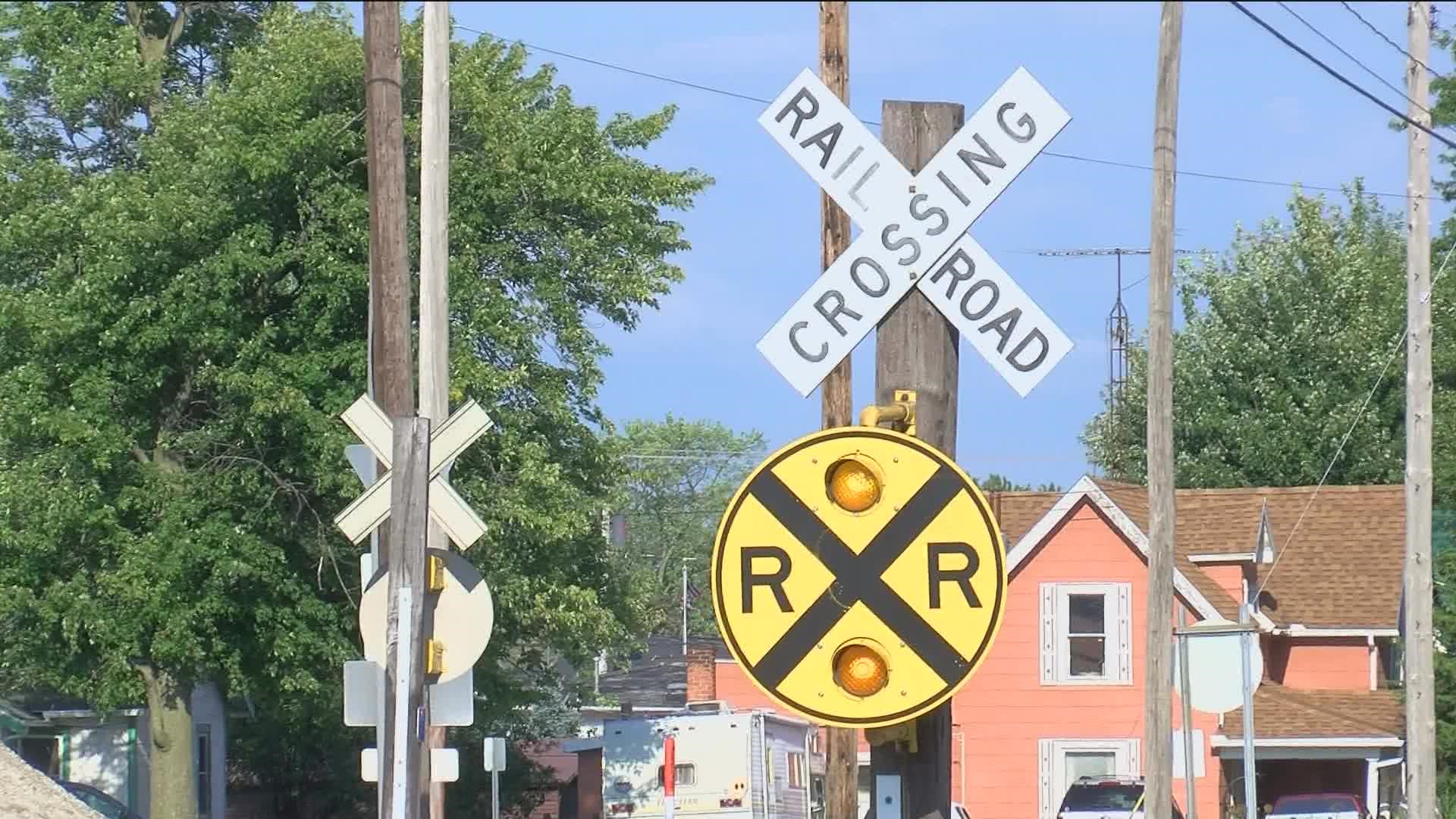WALBRIDGE, Ohio — The Ohio Supreme Court ruled last week that train companies can't be prosecuted for blocking railroad crossings for more than five minutes. That decision overturned a previous ruling, which allowed the state to issue fines for trains stopped and blocking roads for an extended period of time.
With this ruling, people who live near some of those tracks may not be happy with the outcome.
Lake Township resident Krisi Vadnais lives directly next to the CSX railyard.
"It has made me late more times than I can count," she said. "People have a hard time getting to me. Sometimes they're coming to my house and they'll say 'oh I'm stuck by a train' and they try to go around, they're stuck by a train. There have been times where I'm ten minutes away and it takes me an hour to get home."
She said allowing trains to take longer at the crossing isn't just an inconvenience, it's a safety issue.
"How are the EMS or the police, the firefighters, how are they supposed to get to me?" Vadnais said. "When they're 30 seconds away across the tracks, but knowing that those can stay all day long?"
On the other side of the tracks, people deal with similar issues. Marvin Burns previously worked with Lake Township when trains were parked at crossings for days at a time. He said the supreme court's ruling isn't a shock.
"I'm not surprised because that's what I've been told last year when I've been working with the township regarding blocked crossings," Burns said. "They said there have already been past precedents of not being able to sue the railroads or fine them for blocked crossings."
He said it's gotten better since the trains were stuck at the crossing earlier in the year, but the pandemic has made it harder overall on the rail companies and the federal government needs a way to better regulate the crossings.
"They're short on staff, they're running longer trains, more issues, inexperienced crews, all those things have compounded the number of times the crossings have been physically blocked, but it's going to have to be addressed at a federal level," Burns said. "Not at a state level."
Burns said he's seen recently seen trains 'break,' which is when the train will separate cars and cross them in sections, giving people more chances to cross tracks without being stopped.

